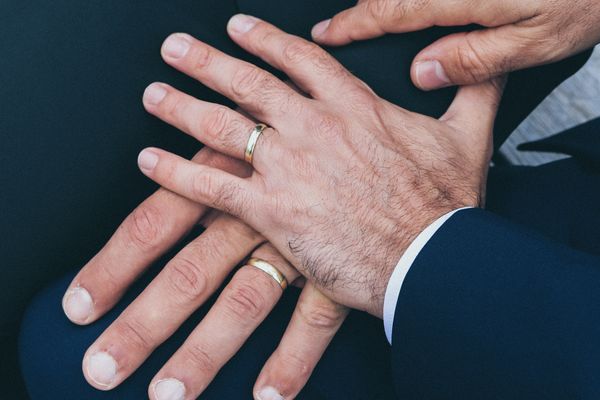Welcome to the height of the United States civil rights movement, part two. Every day in the news, on your Facebook, Tumblr dashboard, Twitter feed, and Instagram scroll there’s someone new calling you a racist, homophobe, bigot, you name it. We are bombarded with stories from all over the country of where the modern civil rights movement of the 2010s is, and where it’s going. However, I find myself asking with each passing post whether the slurs being thrown around are based on semantics, personal feelings, and opinions -- or are these slurs being tossed based on legitimate discriminatory facts contradictory to our Constitution?
United States Supreme Court has legalized same sex marriage nationwide. Due to the “supremacy clause” laid out in our Constitution, this means any state that has a law making same sex marriage illegal is nullified due to direct contradiction of federal law. However, many homosexuals still struggle with acceptance in the work place and overall job security due to openness of their sexual orientation including, but not limited to, openly homosexual teachers and professors in private educational institutions. A specific case being that of a band teacher in a Southern private Catholic school being terminated from his position in Georgia, which is a hire at will state.
The former band teacher and marching band director, was terminated from his job at this private Catholic school shortly after signing a contract renewal. He believes the motives behind school officials terminating him was due to superiors learning of his intentions to marry his partner of six years. His claim that it was discriminatory is backed by his stance that he had been upfront and open about his sexual orientation since his first interview with the school. He has since moved to New York and is continuing to pursue legal action against the private Catholic high school.
The big questions we all have to ask -- what legal precedence does he have to sue? Did the Supreme Court overstep their bounds in the legalization of homosexual marriage since the Supreme Court is only in place to determine Constitutionality of laws already in place?
Yes, the ex-band teacher does have legal precedence to sue because he was terminated from his position for reasons pertaining to his personal life and not his performance in the work place. Will the settlement or case fall in his favor? This is to be determined based on what the terms that he and the school agreed upon in his contract renewal and whether or not his previous employer is subject to the same restrictions of staffing that the institutions in the public education system are subject to, and whether or not they are subject to restrictions that are not hire at will.
Given past cases of the exact same nature -- homosexual teacher or professor terminated for sexual orientation in private, religious schools -- this case will, more than likely, fall short of any monetary reward in his favor, however he will be another case to draw the public eye to the blatant discrimination of a man who is experienced, skilled, and soon the be decorated in his field of work solely for having a different set of beliefs than those he was hired by.
Did the Supreme Court over step their bounds in the legalization of homosexual marriage? My answer is no. Supreme Court’s job was to review the constitutionality of laws banning same sex marriage in states such as Texas, Michigan, Georgia, etc. The ruling overturned all of these laws effectively legalizing homosexual marriage in all 50 states. This was not overstepping any boundaries because they did not write and implement a new law, they simply determined laws banning same sex marriage as unconstitutional due to their direct contradiction of the Equal Rights Amendment originally drafted in 1923 by Alice Paul and Crystal Eastman, who were fighting for women’s suffrage. This amendment led to women’s suffrage, the Civil Rights movement of the 1960s and abolition of Jim Crow laws, and now the abolition of laws banning same sex marriage.
The struggle will still be present for homosexuals in coming years, but progression is imminent. Private business proprietors still hold right to refuse to serve, landlords still hold right to refuse to offer housing, and many business owners (mostly blue collar and non-contract based businesses) still hold power to terminate employees at will without giving reason. Discrimination will remain a problem. We are not born with racism and hatred in our hearts -- we learn it from our surroundings and from how we conditioned to be. It will take time and generations for this system of oppression fade away, but as for now, the institutional support of the hatred and discrimination has been collapsed.
With advocates of high national attention, such as Caitlyn Jenner, and the backing of an online community far deeper than any one of us can imagine, this movement for equal rights for the LGBTQ+ community -- a community that has been overlooked and ostracized since the birthing of our nation -- is one that is here to stay until homosexuality is seen with the same eyes as the heterosexual community.
This is not to be justified by “don’t pick the splinter from your neighbors eye while ignoring the beam in your own,” because homosexuality isn’t a problem or a blemish. What is a problem or blemish is that our neighbors have to go through such a fight just to be seen as a “normal person” and fight for acceptance among their peers.
What this all boils down to is are you against gay marriage? If you answered yes, then don’t get gay married. End of story.





















